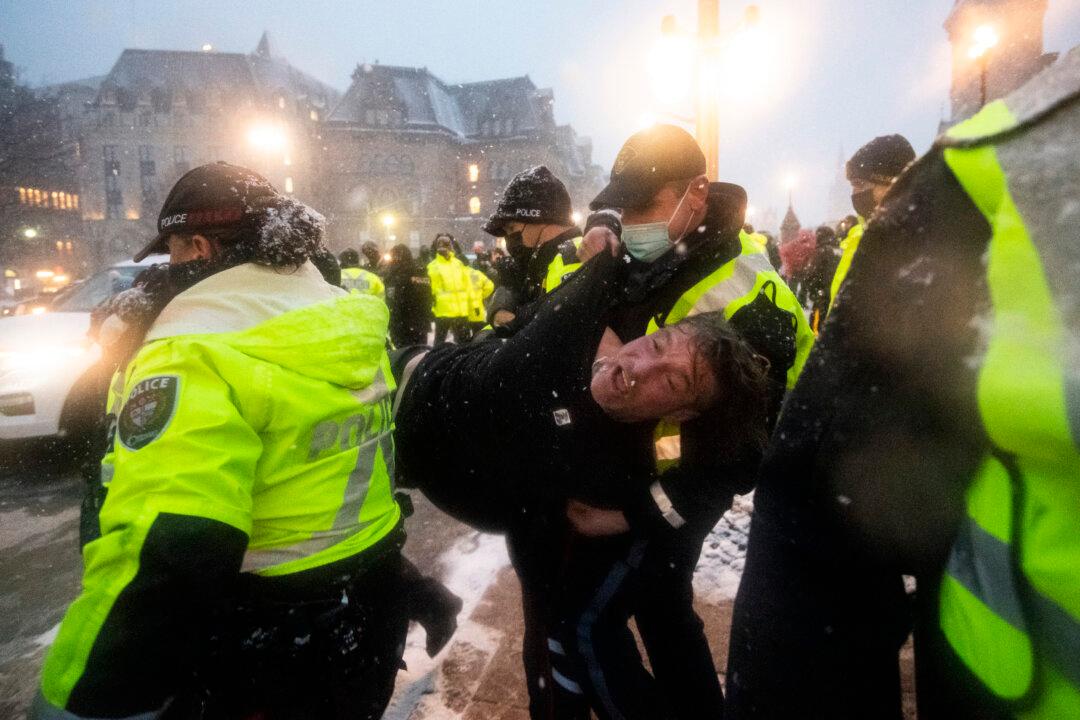A movement by MPs and senators was underway to have the public order emergency to end the trucker protest repealed before the Liberal government revoked it on Feb. 23, says Sen. Marilou McPhedran.
“Just to point out that the day on which the declaration was ended by the government, there was already a movement among a significant number of senators and MPs, including some Liberals, to come up with the requisite signatures to begin the process of ending the declarations and that we didn’t end up having to do that,” McPhedran said on April 14.





